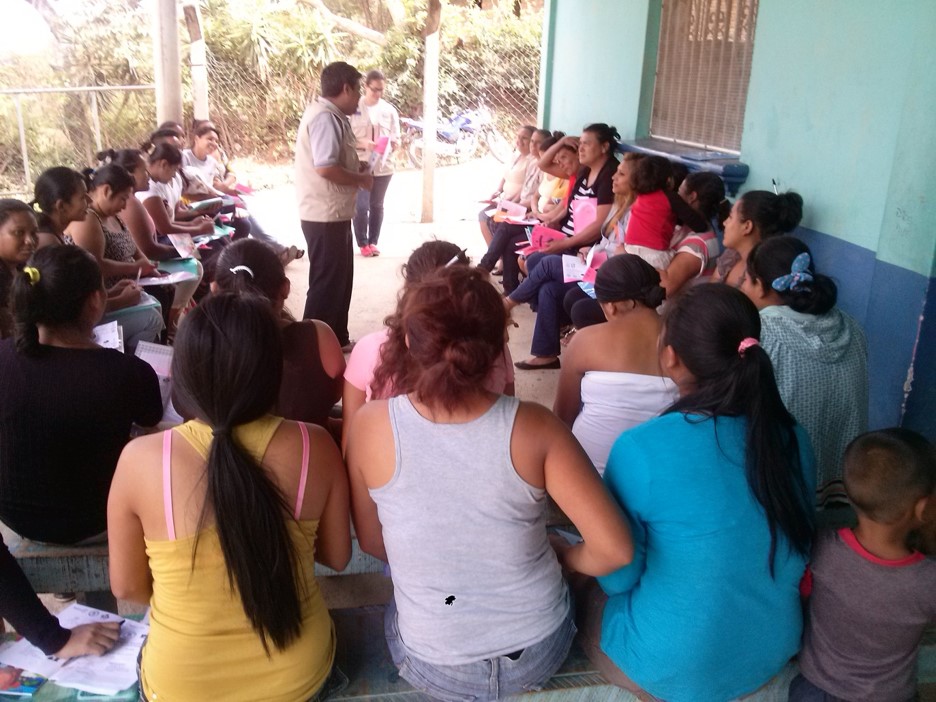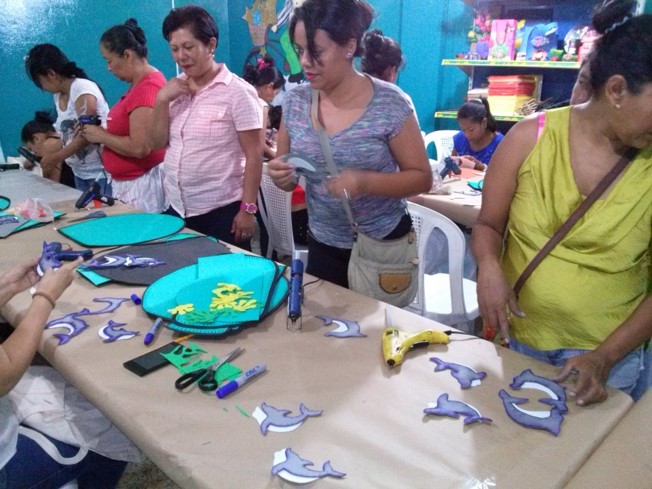The Harbourside International Service team is pleased to learn that our Global Grant project in Tegucigalpa, Honduras has been featured in RI's Rotary Service Connections Blog. The article is below.
Economic and Community Development Area of Focus Manager
Throughout March, we celebrated women in many countries around the globe. It is a month when women are recognized for their achievements without regard to divisions, whether national, ethnic, linguistic, cultural, economic or political. It’s also an opportunity to remind ourselves that more efforts are needed in developing and emerging countries to create equal economic opportunities for all.
While the world has achieved progress towards economic gender equality and women’s economic empowerment under the Millennium Development Goals, women and girls continue to suffer from economic inequalities in every part of the world. Understanding that poverty often hits women hardest in developing and emerging countries, Rotarians in Honduras and Canada have partnered to bring more women into the workforce through skills development and networks creation.
With the onset of global grants, Rotarians from the San Miguel de Heredia, Tegucigalpa Club in Honduras and the Victoria-Harbourside Club in Canada are jointly supporting the HELP projects to provide Economic Opportunity Training (EOT) and Job Search Training (JST) to families that scavenge in the Tegucigalpa city dumps. These trainings support women obtaining skills to become employable or start their own small business. By increasing their incomes and improving their quality of life, the women will be able to provide the necessary resources for their children to attend school and end the cycle of poverty.
With the support of a local cooperating organization, Alternativas y Oportunidades, Rotarians have developed seven successful global grants and supported almost 1,000 trainees to develop new skills in sewing, craft making, baking and hairdressing, among others. They have also learned employment skills, resume writing, interviewing skills, as well as skills to create microenterprises, such as drawing up a detailed business plan and securing micro-financing.
Through the cooperating organization, the project has alliances with the Ministry of Labor and Social Development, the National Directorate of Social Intervention, the National Vocational Training Institute and the National Autonomous University of Honduras, as well as mothers groups in each of the landfill communities to ensure program relevance. In 2014, the EOT program received Honduran Government certification.
Between 2010 and 2016, both clubs in association with their partners designed and implemented seven global grants totaling US $737,317. So far, 984 beneficiaries have been trained and as a result of these trainings, their household income in average has almost doubled when comparing their income before the project and a year after completing the project.

Most of the women who have graduated from previous Economic Opportunities Training programs supported by these global grants are now able to support their own children in school without external charitable assistance.
As an example of the success of these global grants, the 2015 project report shows that approximately 50% of the EOT trainees are currently selling merchandise they learned how to make in the vocational training courses. Approximately 65% of the youth supported through JST secured internship opportunities or obtained employment with the help of the project leadership. The objective of the program is not only to provide training but to also offer post-training support by helping entrepreneurs create their own businesses and assisting students to access the job market.
Even though these results can be improved, the desire to enhance the economic situation of these communities, with a special emphasis on supporting women over multiple years, offers an unprecedented opportunity for other Rotarians to learn.
These examples, amongst many others, show that sustained economic development is not possible without improved employment opportunities for women. As our efforts continue around the world, we encourage Rotarians to prioritize sustainability, community ownership and gender economic opportunities in their projects. Women’s empowerment is an essential tool of achieving sustainable economic growth.


